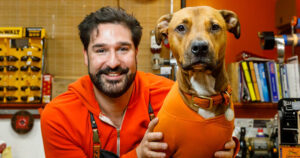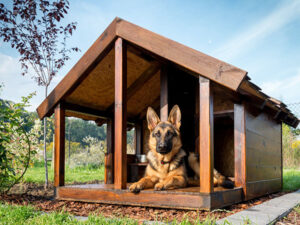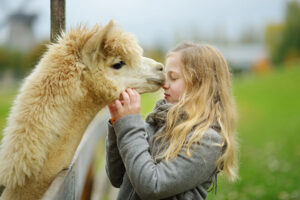Niche Markets: Pet Products can be a Retailer’s Best Friend
Retailers have been sweating the possibility of a recession for over a year. They have been agonizing, strategizing, and adjusting their inventories to brace for the potential economic fall. For hardware stores, there is a simple way to soften the effects: add or increase your store’s supply of pet products. While nothing is recession-proof, pet food and accessories are a great niche market that can be a retailer’s best friend.
According to NASDAQ, the pet products industry is one of the “most attractive and rapidly growing sectors in today’s market.” In 2022, Americans spend $136.8 billion on their pets and that trend is expected to continue a steady rise like a cat’s back.
Although he didn’t have retailers in mind when he penned the line in 1960, famed “Peanuts” author Charles Schulz’s iconic phrase “Happiness is a warm puppy” perfectly describes how most consumers feel about their pets and how those feelings result in added purchases.
Here are a few interesting details about pet owners.
According to the 2023-24 American Pet Products Association, two-thirds of U.S. households own pets. That equates to 86.9 million households.
Dogs are the biggest influence driving first-home purchases among millennials. (More on that later.)
About 45% of American pet owners spend the same amount or more on their pet’s health care as they do on their own.

Nathaniel Garber Schoen and his pooch, Kang, at work at Garber Hardware in Manhattan.
Pet stories
Pet products offered such a lucrative side gig for Crown Ace Hardware, it opened a store dedicated to the industry. Crown Ace, a staple of the Corona del Mar community near San Diego for 49 years, branched out in 2022 with Corona del Mar Pet Supply.
The hardware and pet industry took a big-box step in January 2022 when Lowe’s announced a pilot store-in-store program that opened a Petco in Lowe’s Alamo Ranch, Texas location. The initial plan was for 14 additional stores by mid-year. In July 2023, Lowe’s announced plans to increase its partnership from 15 stores to nearly 300 locations by the end of the year.
Pampering pets isn’t just an American phenomenon. Bunnings, an Australian big-box hardware chain, sunk its claws into the pet products market in 2020 for the first time in its 140-year history. Over two-thirds of Australian households own pets.
The move has been so successful, that in 2023, the company added roughly 1,000 new pet lines to its stores to claim an even larger share of the $13 billion Australian pet industry.
WHY PET PRODUCTS ARE A GOOD INVESTMENT
With the assortment of pet products procreating like rabbits, you might wonder if jumping into the market is a good idea. The simple answer is “yes” and here’s why.
The market keeps growing.
The pet products market has more than doubled in the past 10 years.
A post-pandemic Forbes survey found that 78% of pet owners had acquired their furry friends since the start of the COVID-19 shutdown. Another survey from Petco put the number of pets adopted since the start of the pandemic at around 11 million.
Millennials are now the largest segment of pet owners at 32%, so selling pet products is a way to reach younger shoppers. More than half of them admit to buying gifts for their pets on a monthly basis
Pet owners spend an average of around $1,600 on dogs and $1,100 on cats annually, which is a lot of bones.
They produce tail-wagging profits. It’s common for gourmet pet foods to have roughly 40% profit margins and foods account for approximately 75% of all pet products sales. Other products such as chew toys, dental care, and toys can have margins as high as 70%.
Every season is pet season. Pet products sell year-round. Pets always need to eat, and owners often purchase treats along with food. While sales peak during the holiday season when pet owners splurge on toys, treats and winter clothing for their furry friends, demand is steady and stable during the year which makes managing inventory relatively easy.

Millennials are now the largest generation of pet owners.
The niche has become so popular that several non-pet brand companies have joined.
- Jazwares, a global toy and entertainment company owned by Berkshire Hathaway, has begun offering plushies and collectibles for pets.
- Designer brand Versace offers Barocco-style plush pet beds and Medusa-studded pet harnesses.
- Bloomingdale’s dedicates numerous pages to its Pet Shop site.
- Glad, the company that brought us the Glad sandwich bag, now has Fetch for Pets, which includes pet toys, grooming supplies, pet apparel, feeding accessories, and more.
- Dole, known for canned fruit, has expanded its fruit snacks to pets.
- Arm & Hammer, the baking soda company, offers more than cat litter. It’s product line includes:
- Tartar control dental water additive for dogs and cats
- Pet toothpaste with beef, chicken, vanilla ginger and banana mint flavors for dogs (tuna for cats)
- Doggy dental kits and more
Not to be left out, the entertainment industry has a variety of licensed pet products:
- Star Wars pet beds

Pet owners spend an average of around $1,600 on dogs and $1,100 on cats annually.
- Peanuts dog leashes
- Hello Kitty cat scratchers
- Marvel Comics dog collars
- Harry Potter Wand cat toys
- Batman dog hoodies
- SpongeBob SquarePants fish tanks
- Jurassic World reptile terrariums
- Barbie pet carriers
- And, of course, Game of Thrones cat beds
PETS AND HOME IMPROVEMENT GO TOGETHER

Upscale dog houses are just one of the new pet niche markets.
Another reason pet products aren’t a reach for most hardware stores is that pet ownership and home improvement go hand in paw. Homeowners often add fencing to keep Rover from roaming. Kennels and dog runs are often built instead of bought.
Dogs and cats also bring their own special kind of wear and tear – literally – into their homes. Kitty condos and scratching posts can save furniture and drapes from shredding. Dog doors allow Fido to come and go of their own accord. And there are many products – see Arm & Hammer above – designed to clean up pet messes on carpets and upholstery.
According to Lowe’s, its research reflected the trend mentioned above that millennial and gen Z customers considered pet ownership a factor in their home buying decisions. It also showed that 58% of pet owners say they’re more inclined to shop at a store that offers both home improvement and pet products.
PETS ARE MORE THAN DOGS AND CATS

Hobby farms have turned many different farm animals into pets.
Pets now include more than dogs, cats, fish, birds and reptiles. As many American move beyond the cities and their suburbs, they have adopted farming lifestyles and the critters that go along with that.
“A lot of people have hobby farms now, so we stock hay, straw, seed and feed. We offer chicks seasonally because a lot of people have backyard flocks,” says Elizabeth Schreiber, manager of Rosedale Town & Country in Pennington, New Jersey. “We’re a real farm store, but about a third of our business is pets, now.”
The business started out around the turn of the last century as a feed mill. It evolved into a farm supply, and now it does much of its business feeding and providing products for horses, smaller livestock and pets.
Rural hardware stores all over the country have similar stories. Tri-County Hardware and Farm Supply serves a trio of small towns in the Florida panhandle.
“You gotta have feed because everybody around here has a cow, a pig, a chicken or a goat, and they all need hardware, too.” says owner Dennis Gamble. “I’d rather sell a handful of bolts than a bag of seed. Bolts don’t mold and go bad, but you cater to your customers.”
UPSHOT
Many hardware stores already stock feed and seed and seasonally sell spring chicks. Adding a few brands of food and a line of pet products is an easy way to get additional sales from existing customers, attract new shoppers, and create a steady stream of income in uncertain economic times.
brian bullock
Author


